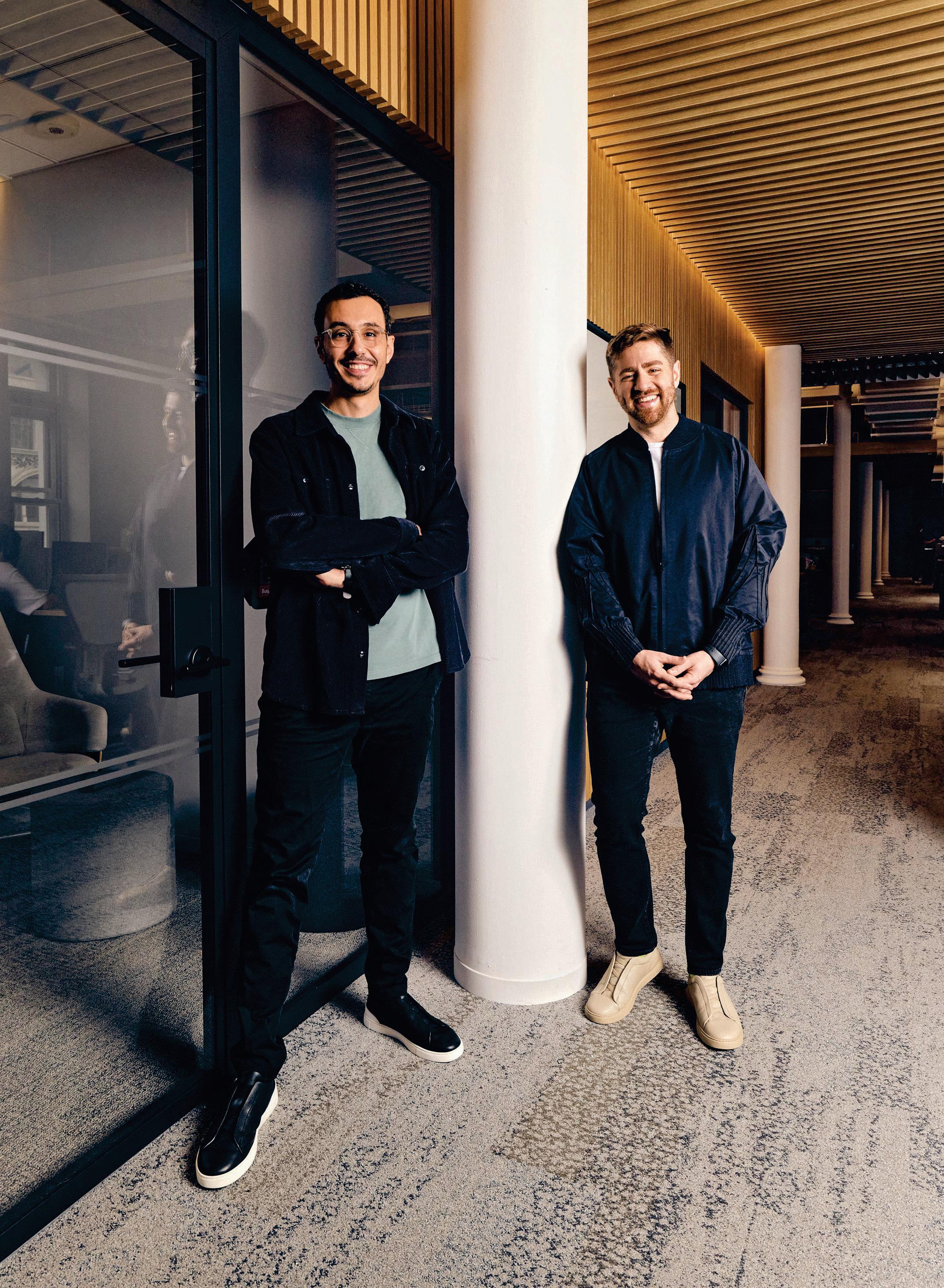Intentar ORO - Gratis
RAMP WANTS TO SHAKE UP CORPORATE CREDIT CARDS. INVESTORS BELIEVE THAT'S A $22.5 BILLION IDEA
Fortune Europe
|October - November 2025
The fintech startup is aspiring to change the way companies spend—and taking aim at American Express. But can Ramp live up to the hype?

CALVIN LEE had his pick of jobs. A former silver medalist in the International Olympiad in Informatics, Lee had racked up internships at prominent institutions from Jane Street to Google during his three years at MIT. By the spring of 2019, he was juggling offers from Citadel and other hedge funds that would have made him a multimillionaire before he was old enough to rent a car.
But then Lee got a call from Karim Atiyeh, his former boss at a tiny startup called Paribus, where he had interned for a month as a freshman.
Paribus had been acquired by Capital One, and Atiyeh and his cofounder, Eric Glyman, had been working for the credit card giant long enough to see there was significant dissatisfaction among corporate customers—and a huge opportunity. They were starting a new company, called Ramp, to build a better generation of corporate cards.
Atiyeh asked Lee to join as a founding engineer. And then came the bold claim: He promised Lee that Ramp would become a unicorn—a billion-dollar-valuation company—within two years.
Lee took the gamble. Exactly two years later, in April 2021, Ramp announced a Series B funding round that valued the startup at $1.6 billion. Lee jokes that it was lucky he hadn't done his research; no New York-based tech company had ever grown its valuation that quickly. "Sometimes it's best not to know the odds," he wrote on Twitter at the time.
Atiyeh and Glyman had taken their own risky bet by leaving senior positions at a Fortune 500 company in their mid-twenties. But their business model, with its laser focus on saving money, proved to be a perfect fit for the corporate mood as the COVID pandemic sent companies scrambling for cost-cutting options. After gaining early support from venture capitalist Keith Rabois and Peter Thiel's Founders Fund, their proposition took off, propelling Ramp to an astonishing $100 million run rate within three years of launching.
Esta historia es de la edición October - November 2025 de Fortune Europe.
Suscríbete a Magzter GOLD para acceder a miles de historias premium seleccionadas y a más de 9000 revistas y periódicos.
¿Ya eres suscriptor? Iniciar sesión
Listen
Translate
Change font size

